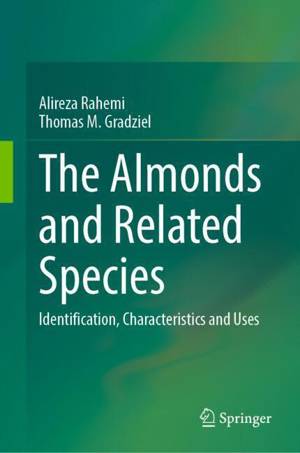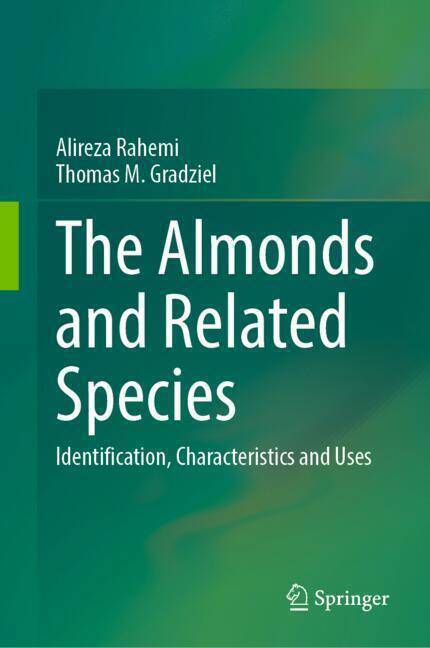
- Retrait gratuit dans votre magasin Club
- 7.000.000 titres dans notre catalogue
- Payer en toute sécurité
- Toujours un magasin près de chez vous
- Retrait gratuit dans votre magasin Club
- 7.000.000 titres dans notre catalogue
- Payer en toute sécurité
- Toujours un magasin près de chez vous
The Almonds and Related Species
Identification, Characteristics and Uses
Alireza Rahemi, Thomas M GradzielDescription
Almond and peach species have global importance as food crops as well as use in landscaping including restoration and reforestation. Because currently available breeding germplasm has a very narrow genetic base, genetic improvement programs are turning to wild germplasm as sources of improved quality, productivity and resistance traits. This germplasm is also enabling the dramatic modification of traditional cropping systems as with the transfer of self-fruitfulness from related wild almond and peach species to normally self-sterile cultivated almond. While presence of an extensive wild almond and related germplasm has been documented in the literature over the past century, most information remains dispersed and often not generally accessible owing to its publication in treatises and journals of limited distribution.
This monograph brings together a comprehensive characterization of almond and its related species including the cultivated and wild peaches. Because it represents the only comprehensive source of information on almond, peach and their wild relatives, it represents a basic reference text of interest to researchers in both the basic and applied plant and ecological sciences.
Spécifications
Parties prenantes
- Auteur(s) :
- Editeur:
Contenu
- Nombre de pages :
- 192
- Langue:
- Anglais
Caractéristiques
- EAN:
- 9783031589379
- Date de parution :
- 11-06-24
- Format:
- Livre relié
- Format numérique:
- Genaaid
- Dimensions :
- 36 mm x 218 mm
- Poids :
- 498 g







